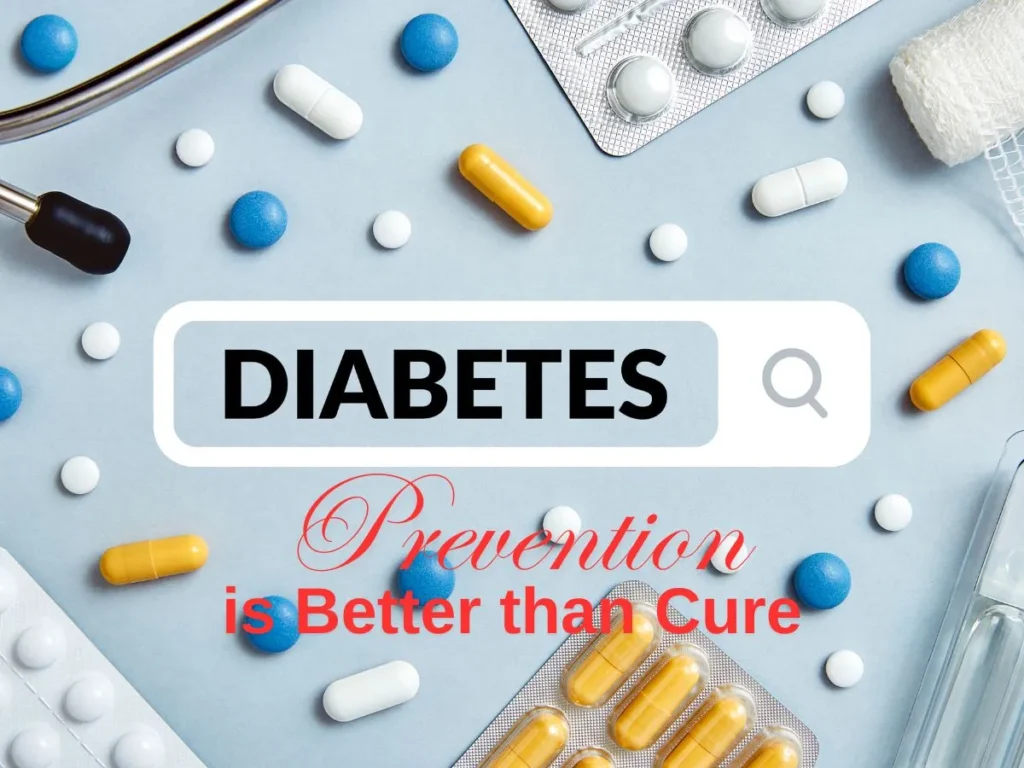Table of Contents
ToggleThe Body's Broken Lock: Unveiling Diabetes and Its Impact
Today on 14th November is World Diabetes Day. Diabetes, a condition often shrouded in confusion, disrupts the delicate dance between our body and blood sugar. Imagine your cells as hungry guests and glucose (sugar) as the delicious feast. Insulin, a hormone made by the pancreas, acts as the key, unlocking the cells to allow glucose entry and fuel their functions. But in diabetes, this key malfunctions.
There are three main types of diabetes:
- Type 1 Diabetes: In this scenario, the body’s own immune system mistakenly attacks the insulin-producing cells, leaving the door locked for glucose. This typically manifests in childhood or young adulthood.
- Type 2 Diabetes: Here, the body either doesn’t produce enough insulin or becomes resistant to its effects. This is often linked to lifestyle factors like obesity and inactivity, and develops gradually, sometimes without noticeable symptoms.
- Gestational Diabetes: This temporary form arises during pregnancy due to hormonal changes and usually resolves after childbirth. However, it can increase the risk of developing type 2 diabetes later in life.
The Warning Signs:
While some people, especially in the early stages of type 2 diabetes, might not experience any symptoms, there are red flags to watch out for:
- Increased thirst and urination: The body tries to expel excess glucose through urine, leading to frequent bathroom visits and constant thirst.
- Unexplained weight loss: When cells are locked out of glucose, the body resorts to burning fat and muscle for energy, causing unintended weight loss.
- Extreme fatigue: Chronic high blood sugar levels leave your cells starved, leading to exhaustion.
- Blurred vision: High blood sugar can damage the blood vessels in the retina, affecting vision.
- Slow-healing sores: Impaired blood flow due to diabetes can hinder wound healing.
The Long-Term Impact:
Left unmanaged, diabetes can wreak havoc on your health. Chronically high blood sugar levels can damage blood vessels and nerves throughout the body, leading to:
- Heart disease and stroke: Damaged blood vessels become more susceptible to plaque buildup, increasing the risk of these cardiovascular events.
- Nerve damage (neuropathy): This can cause pain, numbness, tingling, and even digestive problems.
- Kidney disease (nephropathy): High blood sugar can damage the kidneys, leading to kidney failure.
- Eye problems (retinopathy): This can lead to blindness if left untreated.
- Foot problems: Poor circulation and nerve damage can increase the risk of foot infections and ulcers, which may necessitate amputation.

Living a Full Life with Diabetes:
Fortunately, diabetes doesn’t have to define your life. With proper management, you can live a long and healthy life. Here are some key strategies:
- Diet: Maintaining a healthy diet that controls blood sugar levels is crucial.
- Exercise: Regular physical activity improves insulin sensitivity.
- Medication: Taking prescribed medications as directed helps regulate blood sugar.
- Blood Sugar Monitoring: Regularly checking your blood sugar levels allows for adjustments in your management plan.
- Doctor Visits: Regular consultations with your doctor are vital to monitor your progress and address any concerns.
Diabetes may be a chronic condition, but it doesn’t have to steal your joy. By understanding its mechanisms, symptoms, and management strategies, you can unlock a world of possibilities and live a fulfilling life.

Food for Diabetes: What to Eat and What to Avoid
A chronic condition that affects how your body turns food into energy is referred as Diabetes. With diabetes, your blood sugar levels can get too high. This can lead to health problems such as heart disease, stroke, blindness, and kidney failure.
One of the best ways to manage diabetes is to eat a healthy diet. Eating the right foods can help you control your blood sugar levels, lose weight, and reduce your risk of complications.
What foods should I eat?
The best foods for diabetes are those that are low in calories, fat, and sugar, and high in fiber. These foods will help you control your blood sugar levels and keep you feeling full.
Here is a list of some of the best foods for diabetes:
- Fruits and vegetables: Certain Fruits and vegetables are low in calories and high in fiber. They are also a excellent source of vitamins, minerals and antioxidants.
- Whole grains: Whole grains are a good source of fiber, which can help you control your blood sugar levels. These are also a good source of vitamins and minerals.
- Lean protein: Lean protein, such as chicken, fish, beans, and tofu are low in saturated fat and calories. It is also a good source of protein, which is essential for building and repairing muscle tissue.
- Healthy fats: Healthy fats, such as those found in nuts, avocados, and olive oil, can help lower your cholesterol levels and reduce your risk of heart disease.
What foods should I avoid?
There are a few foods that people with diabetes should avoid. These foods are high in calories, fat, and sugar, and can cause blood sugar levels to spike.
Here is a list of some of the foods that people with diabetes should avoid:
- Sugary drinks: Drinks containing sugar, such as soda, juice, and sports drinks, are very high in calories and sugar. They can cause blood sugar levels to spike and lead to weight gain.
- Processed foods: Processed foods, such as chips, cookies, and crackers, are high in calories, fat, and sugar. They are also very low in fiber and nutrients.
- Fried foods: Fried foods are high in calories and very unhealthy fats. They can also raise cholesterol levels and increase the risk of heart disease.
- Red meat: Red meat is high in saturated fat and cholesterol. It can raise cholesterol levels and increase the risk of heart attack.

Tips for healthy eating with diabetes
Here are a few tips for healthy eating with diabetes:
- Eat regular meals and snacks: Eating regular meals and snacks can help control your blood sugar levels. Aim to eat three meals and two to three snacks in a typical day.
- Choose healthy foods: Choose foods that are low in calories, fat, and sugar, and high in fiber.
If you have diabetes, it is important to talk to your doctor about a healthy diet plan. They can help you create a plan that is right for you and your individual needs.
Your blog is a breath of fresh air in the often stagnant world of online content. Your thoughtful analysis and insightful commentary never fail to leave a lasting impression. Thank you for sharing your wisdom with us.